Ars Electronica 2020 is taking place not despite but because of Corona. From September 9 to 13, the Festival for Art, Technology and Society simply wants to know what to do now? For the first time we’re asking this difficult question not only in Linz but at 120 locations on all continents. Everywhere we meet people who are fighting by peaceful means against the destruction of our environment and rebelling against the powerful, who bring up what is burning under the nails of millions, who demand that the increasingly rapid development of technology should be oriented on us humans and not the other way around. Everywhere we meet people who are working for a better future. We meet artists, scientists and activists and want to know how they imagine our future. Why not join us on this unique journey around the world and experience places you have already been to in a completely different way. Before we give you a taste of this venture and now serve you the best travel tips, here’s a general note that’s very important to us. It also explains why Ars Electronica is becoming a travel agent of a different kind this year.
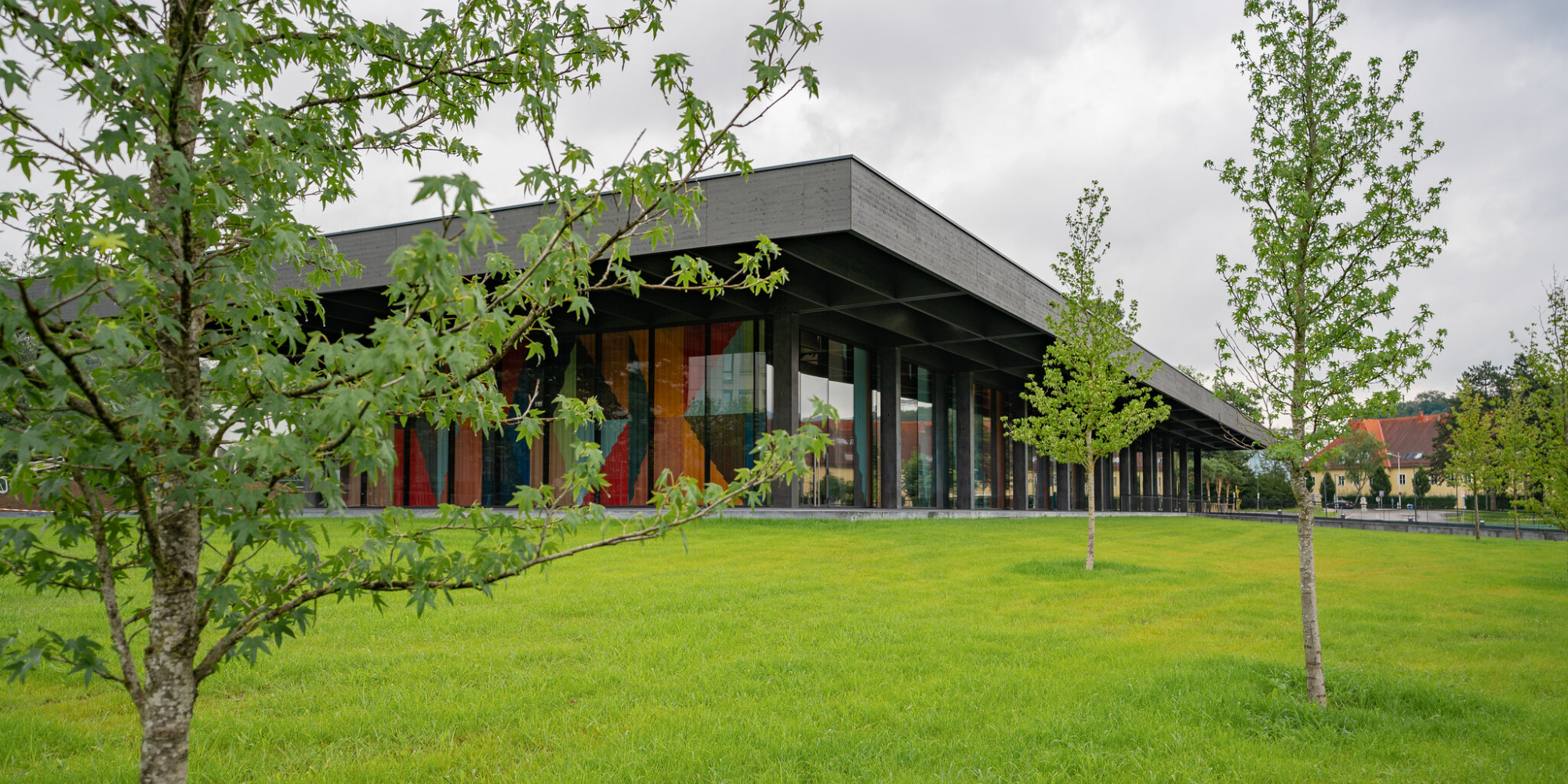
„Stay Home – Stay Safe!“
If you do not live and work in Austria or in a country bordering Austria, please do not come to Linz in September. We are serious about that. Stay at home and stay healthy! Instead, go and be online from September 9th to 13th and take advantage of the many new opportunities (more on this elsewhere) to experience, comment, discuss and exchange ideas with others at presentations, lectures, performances and concerts at the 120 festival locations around the world!
But if you’d like to come to Linz and visit the “Kepler’s Garden” on the campus of the Johannes Kepler University, which is being staged here for the first time, we’d be delighted to do so too, of course. In this case, however, please note that you must book your ticket in advance and online. In order to make your visit to the festival as safe as possible, we want to avoid any queuing and group formation on site, so this time there will be no ticket counters on the festival grounds. Furthermore, we ask you to keep minimum distances to other visitors and to wear a mouth-and-nose protection.
That’s it, enough about Corona. Let’s go now! From Linz, Austria towards the east always towards the sun, one time around the whole world! Let’s go!
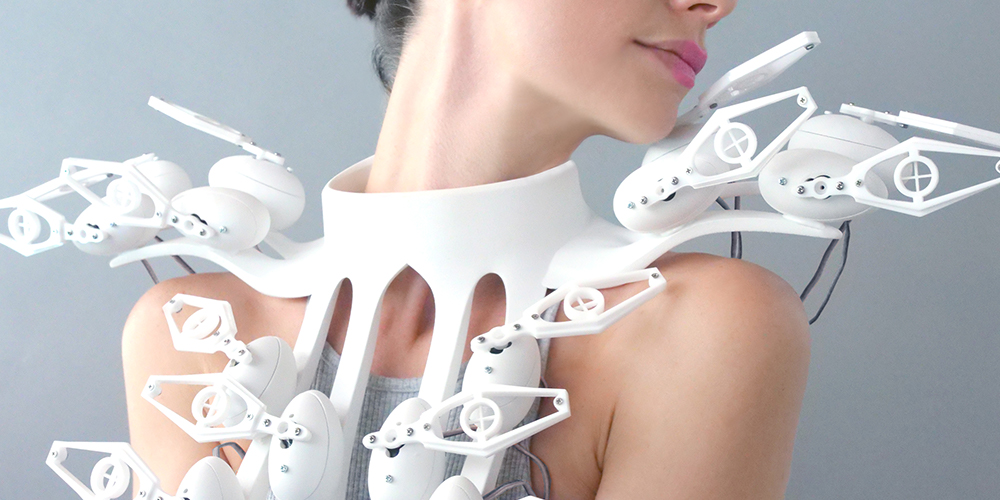
Linz, Österreich: Strolling Through „Kepler’s Garden“
It is the liaison between art and science that everything revolves around here, in “Kepler’s Garden”. Amidst old trees and freshly planted bushes, works of art refer to our relationship to technology and nature. Right next door, in modern, striking buildings that have just been completed and are now accessible for the first time, the “Transformation Projects” of the Linz Institute of Technology show in a visionary and sometimes playful way what “Responsible Technology” could look like, award-winning collaborative projects explore new avenues along the interface of “Science, Technology and Arts” – STARTS for short – and the Ars Electronica Children’s and Youth Festival, create your world, nurtures and cares for an entire “garden of talent”. Art, technology, science, culture, nature – Johannes Kepler would have been delighted to visit this garden inspired by him.
Ljubljana, Slovenia: Investigative Art Against Catastrophe Capitalism
A human, a dog, side by side, both wrapped in futuristic diagnostic warables that can detect heart and respiratory diseases at any time and send an alarm. All data measured by these wearables are collected in a neural network that in turn attempts to synchronize the human heartbeat with that of the dog. Maja Smrekar – the originator of this artistic experimental arrangement – criticises the prevailing power relations in terms of technological development and data sovereignty. Technologies such as AI need a social dimension and not only the economy, but above all civil society should have a say in what we want to use these systems for, the artist believes. Maja Smrekar and her Slovenian colleagues invite us to take a trip into the world of investigative art against catastrophe capitalism.
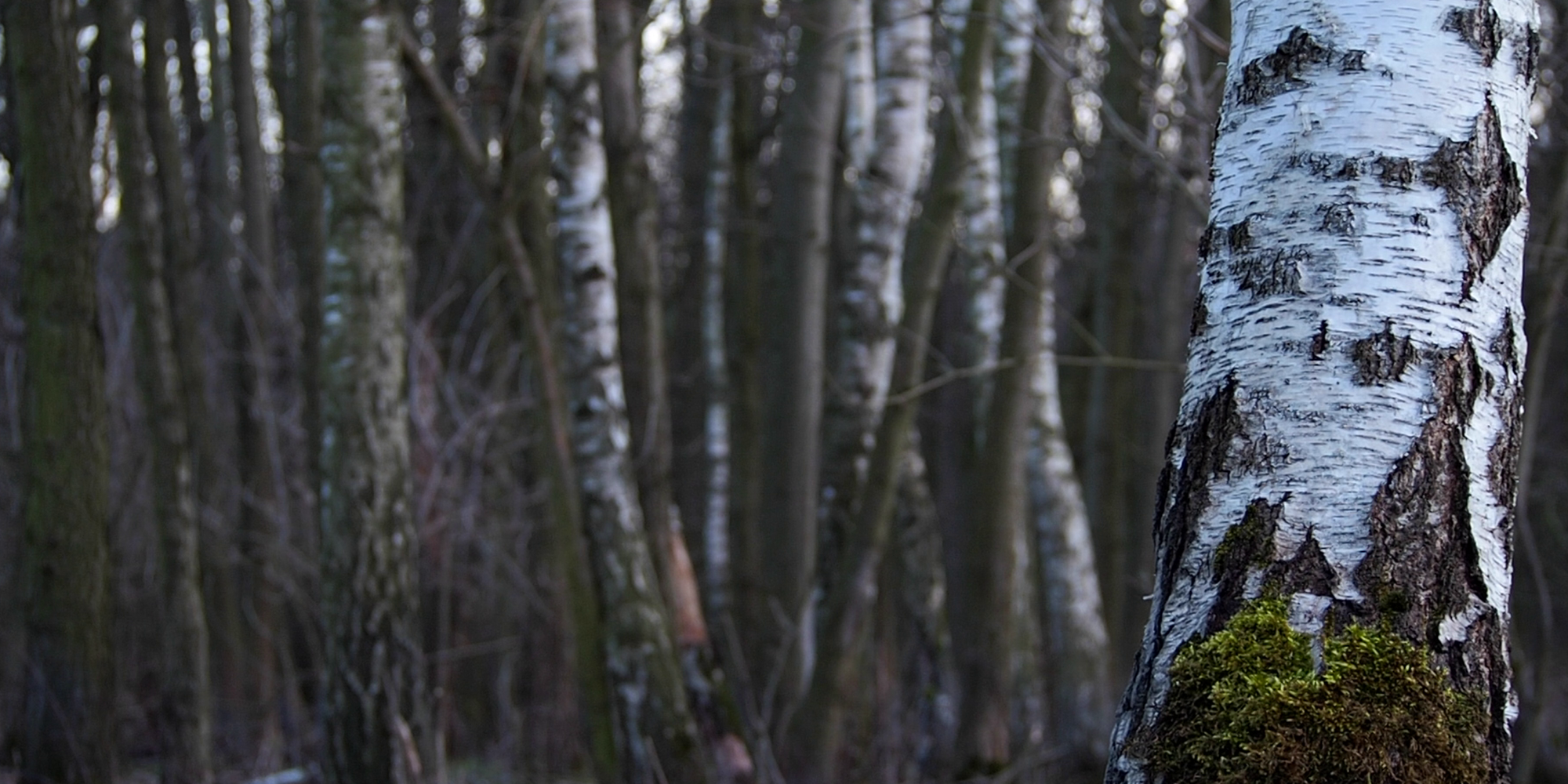
Zagreb/Dubrovnik, Croatia: Thinking About Human And Nature In Quarantine
It is a beautiful Renaissance building, in which once – what irony – plague and cholera infected people were locked up and had to suffer their inevitable fate. In the present day, quarantine and its strict observance is also omnipresent again, which is why artists and scientists ask about our relationship to nature right here, in this very house, and spin their own visionary stories.
Outside, in the Adriatic: Diving Into A World Beyond Our Perception
A holiday by the sea is at the top of most of us’ list of longings. But what always looks so invitingly blue and beautiful from the perspective of the beach visitors is in reality usually under heavy pressure: we are talking about the oceanic ecosystem. The “Adriatic Garden | aqua_forensic 2.0” invites you to dive into a world beyond our perception, searches – and unfortunately finds – a multitude of chemical pollutants and investigates how these affect the fauna and flora of the Adriatic. It is a trip between art, science and “Citizen-Science”, which might make us vacationers look out at the sea differently next time – who knows?
Bucharest, Romania: Closeness & Distance – The Artistic Investigation Of Isolation
Welcome to a vacant lot in the middle of Bucharest, in the park of the local university. Welcome to a stage where researchers and artists bring interactive technologies in the fields of performing arts, media arts and game design to a quite innovative use. Everything here revolves around social proximity and simultaneous “physical distance”, everything revolves around interaction and communication in virtual worlds and “distant arts”. It is an artistic examination of recent experiences of isolation, an experience trip between closeness and distance, an excursion into virtual realms and back!
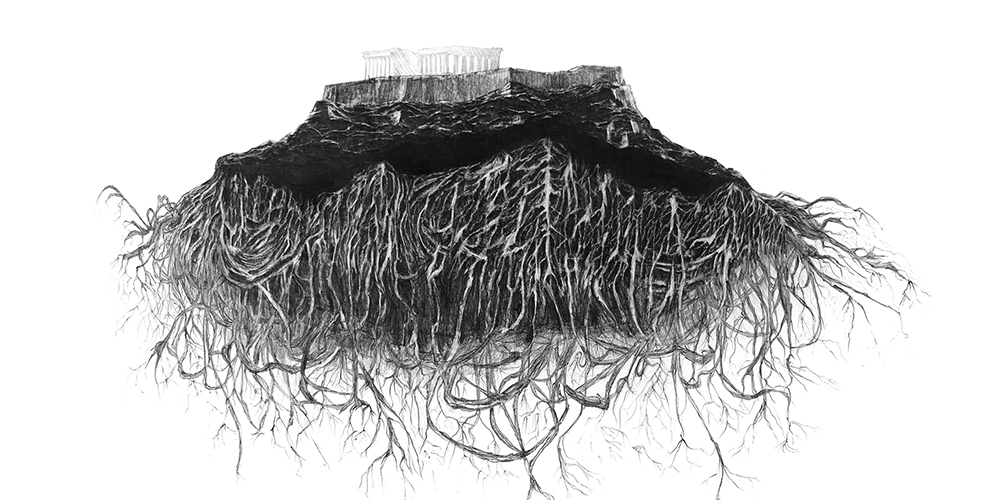
Athens, Greece: In The Data Garden Beneath The Acropolis
The multimedia “Data Garden” by Onassis Stegi, a film, a sound drama, digital games and mobile apps from “HackAthens 2020” – kalos irthate stin Athina! But beware: If you’re looking for dreamy Mediterranean romance here, you’d better try Tripadvisor! The Ars Electronica Garden in Athens is a data garden, a place that asks whether, and if so how, we can reinvent our interpersonal relationships, physical contact, our sex life and our dreams in the midst of a world that is increasingly mediated and shaped by technology? How can our bodies be reconfigured, in an era where digital communication mediates all forms of activity, haptic encounters are becoming increasingly rare and the separation between professional and private spheres is disappearing? Within sight of the testimonies of a great past, the Athenians of today invite you to a journey of thought into a hopefully equally promising future!
Nicosia, Cyprus: From Growing, Blooming and Withering
What bonds can we borrow in the digital age from old horticultural techniques such as plant grafting? Follow the invitation of Cypriot artists into a collaboratively designed virtual garden where everything first grows, then blooms and finally withers. Explore a space that propagates an alternative digital community and lets you have your own individual experiences.
Moscow, Russia: What Data And Mindsets Have To Do With Each Other
More and more processes of our daily life are being digitalized. The result is always huge data sets that are analyzed by algorithms and scanned for patterns – at a speed and in a dimension that are simply inaccessible to our perception. The Moscow curator duo Helene Nikonole and Olga Vad invites you to the “Garden of Datasets vs. Mindsets” and asks about the boundaries between digital and physical spaces and what the implementation of algorithmic regulation and control tools means for a Post-Soviet society like the Russian one.
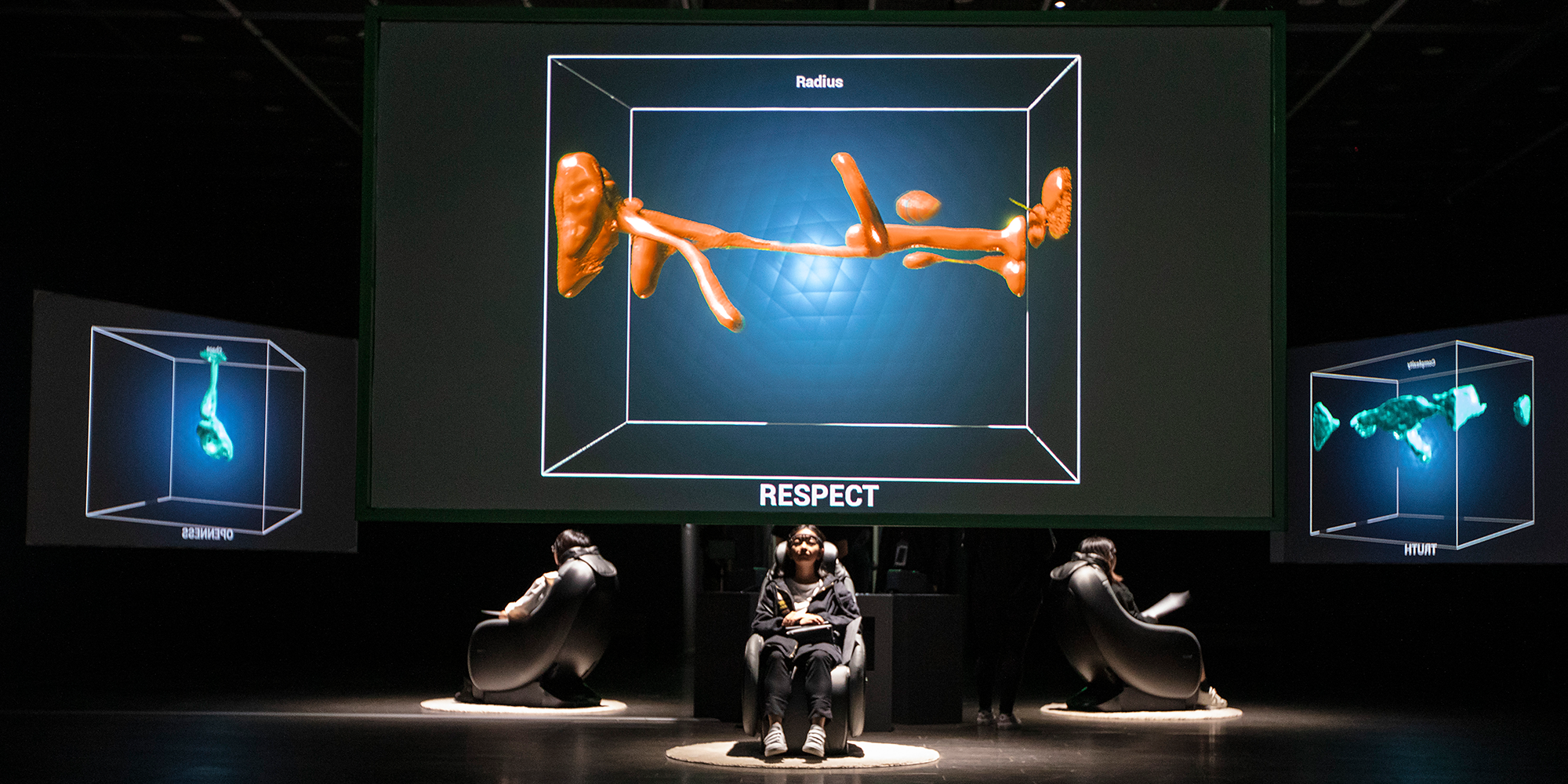
Hong Kong, Chinese Special Administrative Region: Seeing The World With Different Eyes
A metropolis at the crossroads of historical, cultural and political fault lines. Forces are always shifting here, each time causing an outburst of creativity. Life, art, science and technology are linked together in the form of artistic projects, they become magnifying glasses, distorting glasses and spectacles of time, through which we can see our world differently and anew. At least for those present on site, all this is guaranteed to end up in a wine tasting – à la santé!
Seoul, South Korea: In The Garden Between The Worlds
We lead our first life in the physical world, our second life in the virtual world and our third life in a place where both spheres exist. Our real life is supplemented here by virtual aspects and our virtual life by real aspects. In such a place, technology and ecology can no longer be kept separate, but must be considered together. Join us in a garden that has its conceptual origin in the rapidly advancing urbanization of South Korea and sees itself as a practical and at the same time metaphorical blueprint for the future.
Tokyo, Japan: Past & Future Of Media Art In The No. 1 Technology Country
Welcome to the No. 1 technology country, welcome to one of the world’s largest metropolitan areas, welcome to Tokyo! It is no coincidence that a number of the most important and innovative media artists of our time live and work here. Let us take you away to the virtual “Tokyo Garden”, where you can get to know these artists and their roots as well as their visions for the future.

Melbourne, Australia: Down Under, Next To The Nibelungen Bridge In Linz
Austria and Australia, Matthew Gardiner knows both very well. After years at the Ars Electronica Futurelab in Linz, the artist now lives and works in Down Under again. Via Augmented Reality he invites you – no matter in which city and on which continent you may be – to enjoy your Leberkäs-Semmel in the middle of a very Austrian “sausage stand”. Afterwards, Matthew offers you an artistic-scientific tool-kit he developed, with which you can create your own origami robot garden at home.
Auckland, New Zealand: At The End Of One World And An The Doorstep Of Another
It is the last stop before the big jump over the Pacific Ocean: Welcome to Auckland, New Zealand, welcome to the garden “Aotearoa”. Here, large-format projection screens and 3D projections create a unique space in which physical artifacts and virtual presentations such as Mozilla Hubs complement each other 1:1. The entire garden is designed as a bi-directional platform where you can experience projects by New Zealand artists and scientists as well as Ars Electronica hubs from the rest of the virtual world. Whether online or on location, immerse yourself in the “Aotearoa Garden”, experience performances, see prototypical installations, visit studios and research facilities, explore New Zealand’s cultural sites and roam through extraordinary landscapes.
Before we cross the Pacific Ocean and enter the “New World”, we will pause for a moment to take a breath. So many people, so many ideas, so much inspiration, so much unbroken optimism. From Linz in Austria to Auckland in New Zealand. Look forward to the second part of the journey, which will take us to North and South America, Africa and back to Europe. See you soon! And until then: Visit our festival website to keep up to date and follow our social media channels.